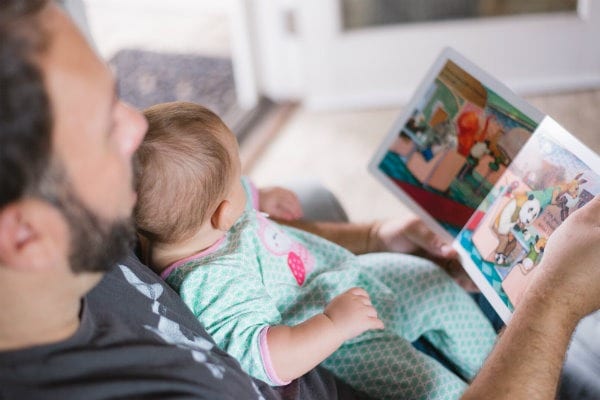The same report found 71% of men say that leave is important to them. Just two per cent of Australian fathers currently take more than two weeks off when a baby arrives.
Randstad’s 2019 Return to Work Report surveyed 1000 Australians, with 59% saying they believe the most difficult thing for fathers following the birth of a child was finding a balance between childcare and financially supporting their family. The lack of paid leave and flexible working arrangements came a close second.
Nearly half of respondents said dads have to grapple with traditional gender roles, the assumption that mums are the stay at home parent, and that fathers deserve the same opportunities as mothers when it comes to caregiving and parenting.
The General Manager of Diversity and Inclusion for Randstad, Kerry McQuillan, said the figures are vital at a time when closing the need to close gender gaps is gaining more traction.
“More needs to be done to remove the stigma around men asking employers for better flexible working practices, challenging gender stereotypes and supporting fathers through this new work-life balance,” she said.
McQuillan also cited figures from the Australian Institute of Family Studies revealing that the number of hours fathers spend in employment remains at the same level before and after having children — but changes dramatically for women after having children.
“We need to normalise the agenda by removing the taboo for men talking about parental support,” she said.
The report also showed that 68% of respondents agreed that providing new dads with flexible working arrangements, such as shorter work weeks, part-time options and the choice to work from home is the most important factor in ensuring they feel supported transitioning back into work.
Some other important findings from the report included:
- 1 in 4 people (38%) want businesses to commit to a long-term culture change by making flexible working a core benefit of the job to help boost productivity
- 35% of the nation urges employers to train managers in leave policies and how to support fathers as they re-enter the workforce following paternity leave
- More than a third (34%) of Aussies agreed that providing emotional support by listening to employees who may be managing stressful times on the job, and in their home life is vital
- 33% of people surveyed felt that offering child care assistance benefits, for example help finding care or subsidised back-up care is also important
- Creating a robust transition plan to agree expectations and map timelines for completing projects and managing handovers as dads return to work is important to 29% of Aussies
- 28% of men and women said evaluating an employee’s performance based on results vs the number of hours spent in the office working is crucial
- Nearly a third (27%) of the nation felt establishing formal transition programs to help with the return to work from parental leave is key
- 1 in 5 (21%) said employers need to provide support groups or parent networks to enable other parents to talk about some of the issues they are facing and guide each other through
With parenting discrepancies being a large contributor to the gender pay gap, it’s time more workplaces start providing better leave options and support to families.
Men and women deserve the same opportunities to work and stay at home, and policies that make it more difficult for fathers to be engaged in the care of their children contribute to the ingrained gender roles that disadvantage everyone.

